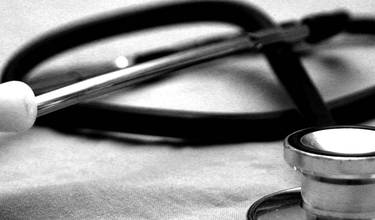What is Non-Hodgkin Lymphoma?
Non-Hodgkin Lymphoma is a type of cancer, which begins within the white blood cells also known as lymphocytes. The lymphocytes are a part of the body’s lymph system helping fluids move through the body, and it is also a part of the body’s immune system, which normally helps fighting off diseases and infections.
Since cancer is abnormal cell growth, the Non-Hodgkin Lymphoma can begin anywhere in the body, where lymph tissue is present. Considering the body, major sites where lymph tissue is present are:
- Lymph nodes
- Spleen
- Bone marrow
- Thymus
- Adenoids
- Tonsils
- Digestive tract
Different types of Non-Hodgkin Lymphoma are present, depending on the type of lymphocyte (white blood cell type) affected by the cancer. The two main types of lymphocytes are:
- B lymphocytes (B cells); this type of lymphocyte makes a protein called antibodies. The antibodies will attack germs or virus cells by latching on to them and showing the immune system that this cell or germ must be destructed.
- T lymphocytes (T cells); this type of lymphocyte has many sub-types. Some of these T cells are meant to destroy germs and abnormal cells, while other types can boost or slow down the cells of the immune system.
Depending on how fast the cancer grows and spreads, the Non-Hodgkin Lymphoma can be divided into further two main groups, while some types of Non-Hodgkin Lymphoma still do not match these two main groups (e.g. mantle cell lymphoma). These main groups are;
- Indolent lymphomas: Indolent lymphomas are slowly both considering growth and spreading.
- Aggressive lymphomas: Aggressive lymphomas, as the name implies, grows quickly and spreads quickly. One of the most common aggressive lymphomas is diffuse large B cell lymphoma (DLBCL)
What are the symptoms of Non-Hodgkin Lymphoma?
Since Non-Hodgkin Lymphoma can affect different parts of the body, and in general affects the body’s immune system, the symptoms can be very hard to distinguish from an infection. Having one or more of these symptoms does not mean that you definitively have lymphoma. Please consult with your doctor in order to get the diagnosis.
Common symptoms for Non-Hodgkin Lymphoma:
- Enlarged lymph nodes
- Chills
- Weight loss without trying to lose weight
- Feeling very tired (fatigue)
- Fever without having an infection
- Easy bruising or bleeding
- Drenching night sweats
What are the causes of Non-Hodgkin Lymphoma?
The causes of Non-Hodgkin Lymphoma are still unknown. However, some factors can be suspected, such as; HTLV1 virus, infection with Helicobacter Pylori, AIDS, treatment with immune suppressing medication, infection with mononucleosis, infection with hepatitis C, celiac disease and some types of connective tissue disease. What these types of diseases have in common is that they can either change the genes or change the immune system (e.g. immune deficiencies, autoimmune diseases, chronic infections).
What are the treatments for Non-Hodgkin Lymphoma?
In general, patients with Non-Hodgkin Lymphoma are treated with either chemotherapy or radiotherapy. But other types of treatments like; monoclonal antibody therapy or steroid medication can be discussed as treatment, depending on the type of Non-Hodgkin Lymphoma. Some patients might experience relapse of the disease, and might be offered a bone-marrow transplant, depending on the progression of the disease.


